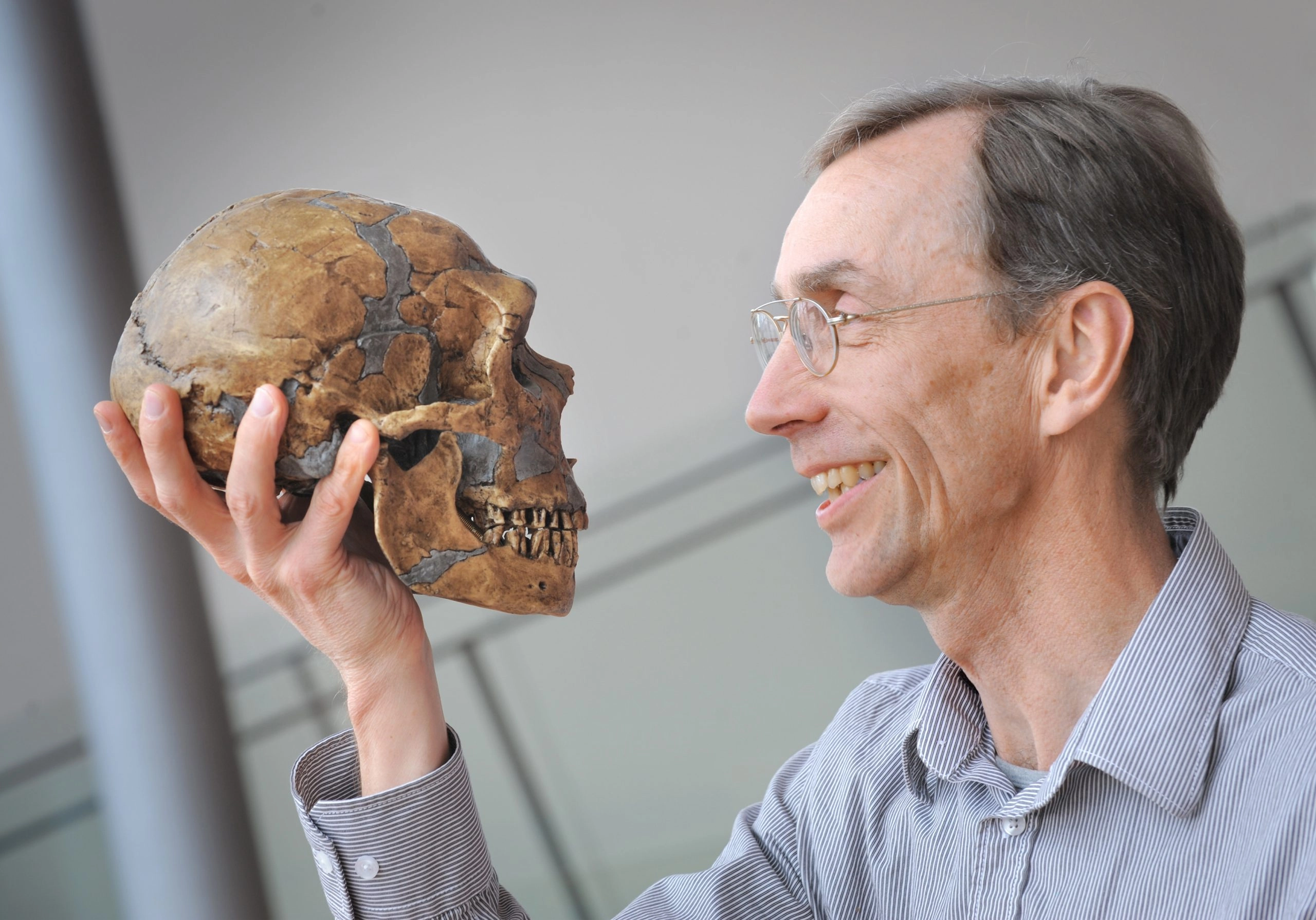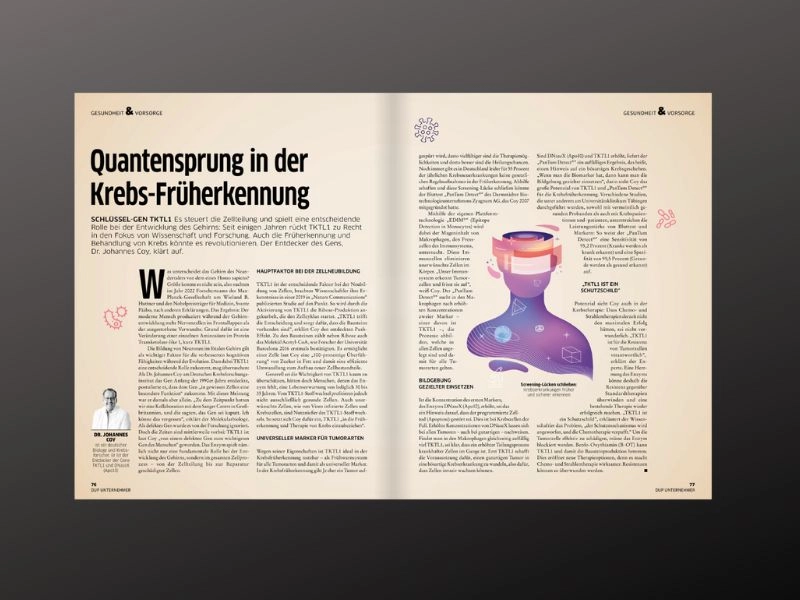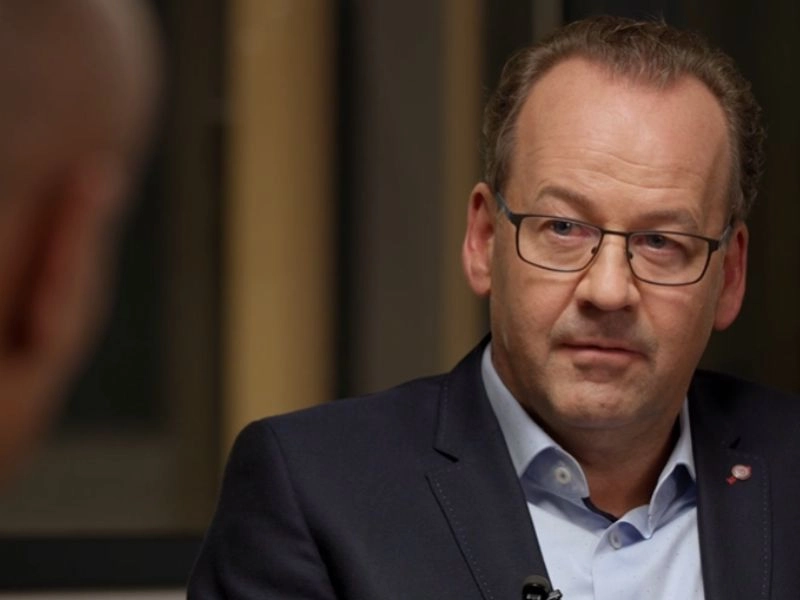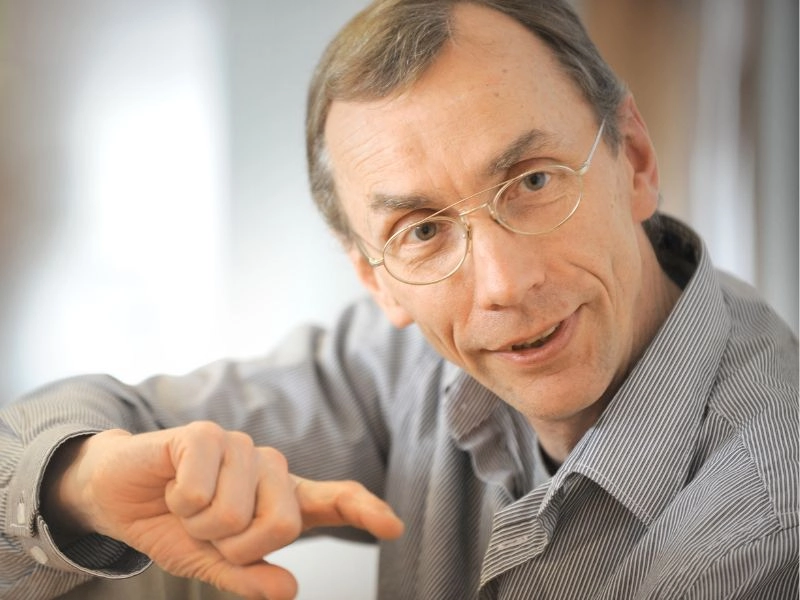
TKTL1. Also known as transketolase-like-1, a gene that was discovered in 1995 by Dr. Johannes Coy and to which no great importance was attributed for a long time, is increasingly becoming the focus of current scientific discourse. It is now clear that TKTL1 controls the cell cycle, is responsible for the development of cognitive abilities which enabled Homo sapiens to overtake Neanderthals, and is also accountable for dangerous cell proliferation in cancer.
TKTL1 has become the focus of much research and is not likely to disappear any time soon.
TKTL1.com tries to keep up with the rapid developments regarding TKTL1, to present the current state of research and to classify the key gene TKTL1 socially and medically. Our goal is to provide a central point of exchange and information for all the brilliant minds working on and reporting about TKTL1 and for all those who simply want to learn more about this gamechanging gene.
Evolutionary Key Gene with Unexpected Potential

Bildquelle: ©Frank Vinken
The 2022 Nobel Prize in Medicine was awarded to Swedish physician and biologist Svante Pääbo. He managed to sequence the complete genome of a Neanderthal. So far, so interesting. One of the truly groundbreaking findings here is that it was a mutation on the TKTL1 gene that led to a crucial change in brain development which distinguishes modern humans from Neanderthals. Even before the Nobel Prize was announced in September, a study on a blood test was published in May 2022:

Prof. Dr. Svante Pääbo | Image Source: ©Frank Vinken
The study concluded that the blood test under review was capable of providing indicators of cancer – for nearly all types of cancer – and thus identifying people who would benefit from imaging studies to detect cancer or precancerous lesions. This is a potentially revolutionary result for early cancer detection as well as for cancer treatment options and survival rates. What the blood test detects? TKTL1. If it is present in elevated concentrations in immune cells, the blood test is considered conspicuous.
TKTL1 News
TKTL1 News

Dr. Johannes Coy as speaker at the the 24th conference of the GSAAM
Blessing and curse of the TKTL1 sugar-fat metabolism
How it can both protect us and make us ill. Mutation in the TKTL1 gene promotes nerve cell formation (blessing). Activation of the TKTL1 metabolism also leads to malignant tumour cells (curse).

TKTL1: “Quantum leap in the early detection of cancer”
DUP UNTERNEHMER magazine reports on TKTL1: “TKTL1 has rightly been the focus of science and research for several years. It could also revolutionize the early detection and treatment of cancer.”
Full article
TKTL1 Talk With Dr. Johannes Coy: “We Will Rethink Medicine.”
TKTL1 discoverer Coy talks about opportunities and future expectations based on latest scientific findings on TKTL1 – opportunities for medicine in general, early cancer detection and cancer therapy.
Full Interview
The Story of TKTL1 – Exclusive Interview with Dr. Johannes Coy
TKTL1-discoverer Coy answers “15 questions about the gene that keeps us healthy but causes cancer.” He looks at the history of the key gene, from 1995 to today, and gives an outlook on what TKTL1 makes possible.
To Interview
Medicine Nobel Prize 2022 Goes to TKTL1 Researcher Svante Pääbo
With his research on the Neanderthal genome, Pääbo has shown, among other things, that TKTL1 plays a key role in the development of the cognitive abilities of modern humans.
Science Publication
Early Detection Program “Krebs Scan” Uses TKTL1 Blood Test
PanTum Detect® blood test, which detects the enzymes TKTL1 and DNaseX, is part of the cancer early detection program Krebs-Scan of HanseMerkur Insurance. If the test is conspicuous, the suspicion is clarified by means of imaging.
To Press Release (german)
Milestone in Transketolase Inhibitor Research
Pharmaceutical company benfovir AG is researching the effect of transketolase inhibitors against viral infections such as SARS-CoV2. The first part of the Phase 1 clinical trial on the tolerability of the drug B-OT was successful.
To Press ReleaseTKTL1 in Detail
TKTL1 in Detail
TKTL1 Pioneers

Image Source: ©Frank Vinken
Prof. Dr. Svante Pääbo
Svante Pääbo is a Swedish biologist and geneticist known for his pioneering contributions to the study of the human genome and human evolution. He sequenced the Neanderthal genome, gaining insights into the interbreeding of Neanderthals and modern humans. He received numerous awards, most recently the Nobel Prize in Medicine, and revolutionized our understanding of human evolution.
For his research, he defined exactly which genes were present in both Neanderthals and modern humans but had undergone a mutation. Thus, he identified TKTL1 as one of the key genes for human brain development.

Dr. Johannes Coy
Dr. Johannes Coy is a German biologist and cancer researcher who discovered the TKTL1 and DNaseX genes in the 1990s. He suspected even then that the two genes could be potential markers for cancer and was involved in the development of a corresponding blood test.

Image Source: ©Max-Planck-Institut
Prof. Dr. Wieland Huttner
The German physician, neurologist and biochemist Wieland Huttner and his team discovered the mutation on the TKTL1 gene that distinguishes us modern humans from Neanderthals. The study on this, published in “Science” in September 2022, shows that the “new” variation of the TKTL1 gene, called “modern human TKTL1” in the paper, leads to greater neurogenesis in the developing human neocortex than the “archaic” version of our ancestors. The basis for this research was the decoding of the complete Neanderthal genome by Svante Pääbo.